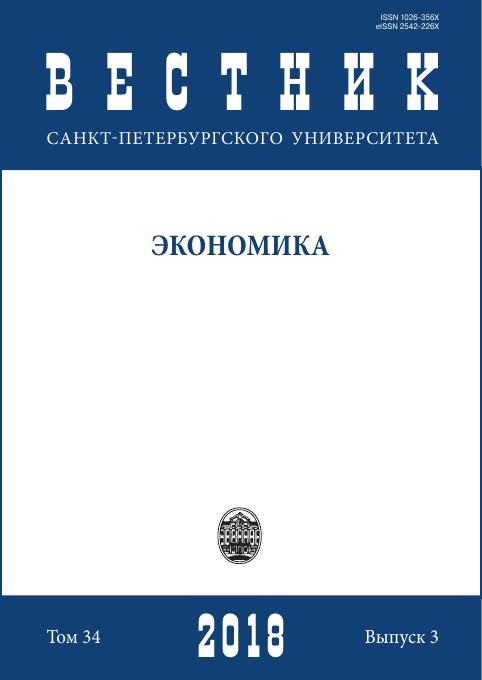Interrelation of energy and climate policy: economic and mathematical justification of recommendations for the regulator
DOI:
https://doi.org/10.21638/spbu05.2018.301Abstract
The article is devoted to the analysis of the formation of a new climate policy in Russia in connection with the solution of the tasks of increasing energy efficiency and environmental safety on the basis of technical, technological, organizational and institutional innovations. Such an integrated approach, creating conditions for obtaining a synergistic effect, is actively used in developed countries, including EU states, it follows from the Paris Climate Agreement (2015), however, it is still waiting for consistent application in Russia. The condition for achieving such a synergistic effect is a deep scientific justification of the decisions made by the regulator and business. For Russia, the regional profile of the problem is among the most important, which is due to the high regional differentiation in terms of economic development, the sectoral structure and the structure of energy balances. In this context, using regression models of panel data, the authors analyze the influence of the factors identified as key, on the level of energy intensity of the regional economy. On this basis, the main factors influencing the intensity of environmental pollution are identified, taking into account the amount of energy used to produce GRP. As a result of the research, recommendations are developed for the harmonization of environmental, climate and energy policies, which should be taken into account when developing the National Low-Carbon Development Strategy 2050. Particular attention is paid to the completion of the system for recording data on GHG emissions in Russian regions, as well as on clarifying the system of indicators for the effectiveness of energy and climate policy by comparing them with the results of the best regions and with international best practices.
Keywords:
energy and climate policy, intensity of environmental pollution, innovations, energy intensity of GRP, Long-term low-carbon development strategy
Downloads
References
References in Latin Alphabet
Translation of references in Russian into English
Downloads
Published
How to Cite
Issue
Section
License
Articles of the St Petersburg University Journal of Economic Studies are open access distributed under the terms of the License Agreement with Saint Petersburg State University, which permits to the authors unrestricted distribution and self-archiving free of charge.






